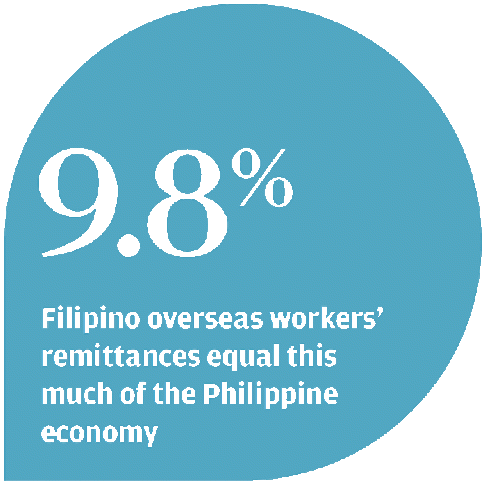Filipino domestic helpers remit more to help rebuild after typhoon Haiyan
Filipinos in Hong Kong will be sending extra home for years to come to help families rebuild, forcing them to put their own dreams on hold

Filipinos working as domestic helpers will be sending more of their meagre wages home for years to come as their families rebuild homes and livelihoods devastated by Super Typhoon Haiyan, which struck the central Philippines last month.

The Hong Kong subsidiary of Philippine National Bank, PNB Global Remittance and Financial Company, has seen a 5 per cent to 10 per cent increase, branch manager Belinda Martin said.
The money comes mostly from domestic helpers - people like Emilyn De Vincente, a 27-year-old from Capiz province, which was devastated by Haiyan. Known as Yolanda in the Philippines, the storm was the most powerful ever to make landfall, with most of the damage done by a huge storm surge much like a tsunami. Over 5,700 were killed and 1.2 million homes destroyed.
De Vincente does not expect the government of the Philippines to help rebuild her family home, which was levelled when the typhoon struck in early November. She has been collecting money and goods on her own, and sending them directly to her family.
"Although there are many donations from foreign countries, few have reached my family's hands," she said.
De Vincente used to send HK$1,000 of her HK$3,920 monthly salary back to the Philippines to support her parents, who are farmers, and five younger siblings. Because of Haiyan, she plans to send an extra HK$500 per month.
